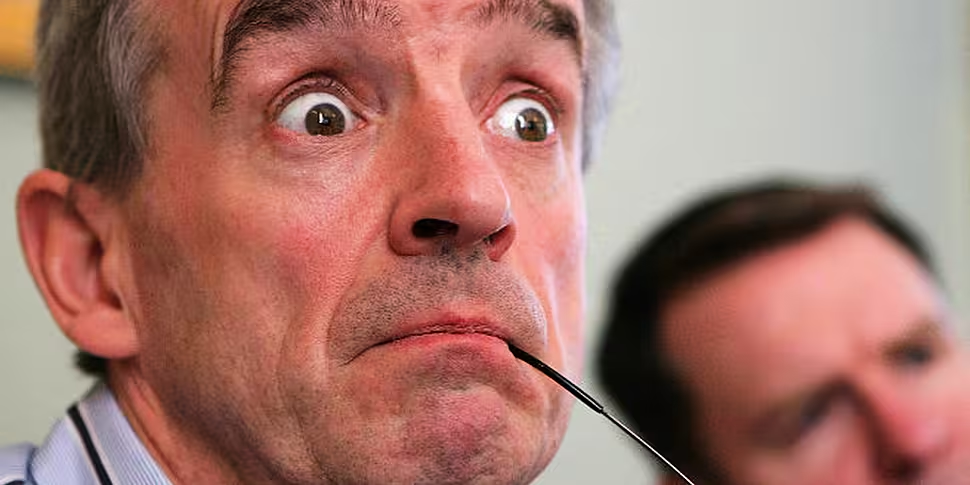It may be time to listen to Micheal O’Leary – there, I’ve said it. Not so much in terms of Ryanair’s ongoing stellar operational performance, but it’s impact on the airline’s share price.
The trouble is that the wolf of Mullingar has been crying in this manner for some time and has every bit as long-standing a record of regularly talking down the airline’s trading and share price prospects as he has of dissing every competitor and airport that gets in the company’s way.
Clearly, the company’s unscheduled announcement during the week was unusual even by its standards. With the AGM only a fortnight away, management obviously ran the risk of investor wrath if it had not disclosed, as early as possible, just how strongly it had performed this summer.
In an environment of ongoing global market volatility and uncertainty, investors, large and small were only too happy to respond to the 25% uplift in current year profit guidance, to clamber on board and to fly the share price to new altitudes of close to €14 per share.
Summer sun
To be fair, the company statement pointed out all the “perfect storm” reasons as to why this particular summer’s trading proved so benign: the unseasonally cold summer weather in Northern Europe; the strong value of sterling versus the euro which prompted hundreds of thousands of Brits to decamp to southern European climes; and the historically low price of aviation fuel, which had a material impact on Ryanair’s higher-than-industry average of unhedged supplies.
The fortuitous combination of all these circumstances may not recur for some time, but to repeat, Ryanair has become a master at finding credible reasons to qualify its likely future performance whenever it beats market expectations, as it does on a regular basis.
And, on a broader strategic level, there is no reason to doubt that it will meet its targets over the next five to six years of increasing its annual passenger volumes from 104-105 million in the current financial year to its 160 million annualised target.
There’s no reason either to doubt that with its billions of euros in cash reserves enabling it to negotiate with manufacturers, a pipeline of new, fuel efficient aircraft, it won’t continue to eat into the short-haul market share of the so-called legacy carriers and to see off the challenges of many weaker, so-called low-cost operators - perhaps even of relatively strong competitors such as EasyJet.
The latter, though currently performing well itself, has long been in Ryanair’s sights. It was this factor, and the plan to convert Aer Lingus into a vehicle that could compete with EasyJet, that partly underpinned O’Leary’s series of bids for the national carrier, while Ryanair’s incredibly successful new policy of being nice to customers, was triggered by concerns that EasyJet was winning business and leisure customers to its softer culture and large airport destinations.
As recently as this week, O’ Leary has again stretched out the likely timeframe he will remain in charge of Ryanair by another five or six years and, credibly, shrugged off any notion that it might become a take-over target for a deep-pocketed Gulf airline.
Cruising
So, onwards and upwards it will be in terms its operational and financial performance, with the odd blip occasioned by unforeseen global economic or travel-related events.
The key question now is what is an appropriate value for the Ryanair share price. And at either side of €14 per share, it’s currently trading at a ratio of close to 21 times forward earnings. This compares with a p/e of 14 for EasyJet and of 16 for Ryanair’s original prototype, South West Airlines of Texas.
This suggests an appropriate price premium to Ryanair’s most comparable peers particularly as both pay a regular dividend to shareholders as compared to Ryanair’s irregular share buy-back and special dividend programmes.
With clouds of uncertainty gathering on international markets, interest rates on the way up, and an unlikely re-occurrence of this summer’s circumstances, investors should perhaps heed the wolf and hold this new Ryanair share price altitude.









